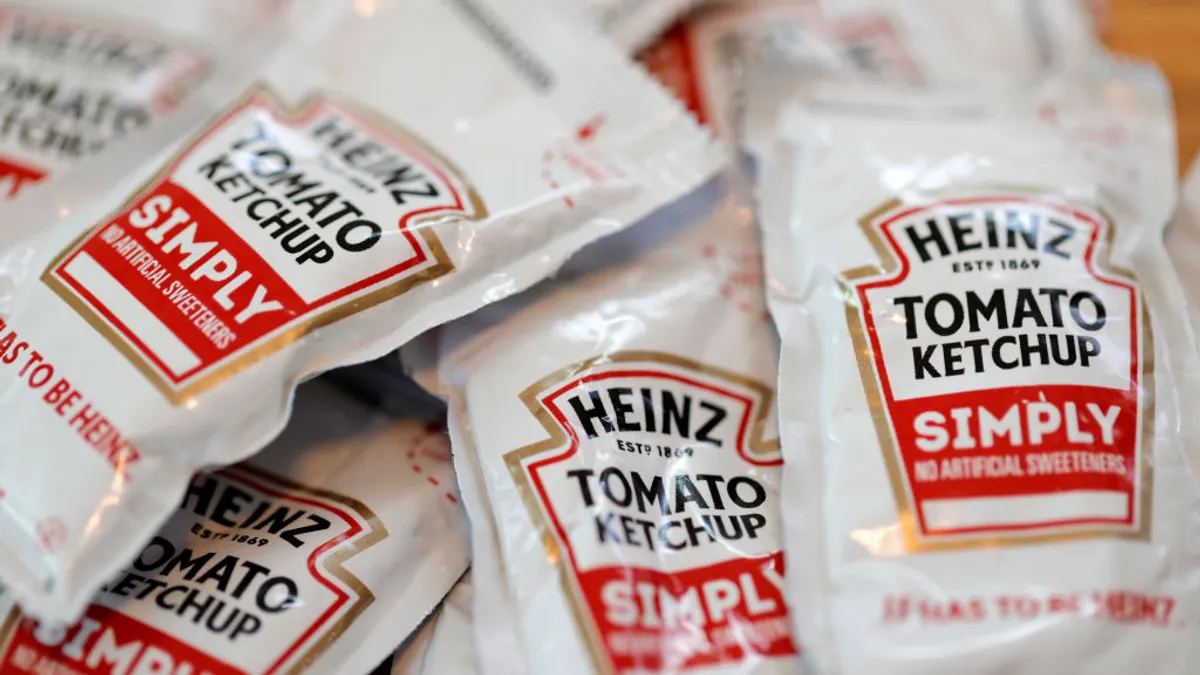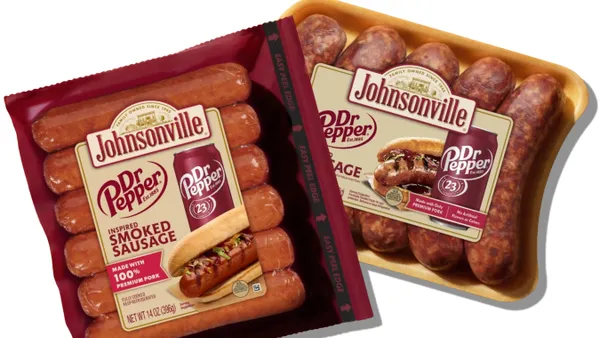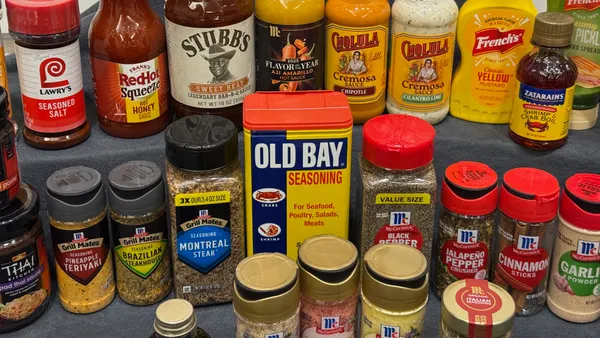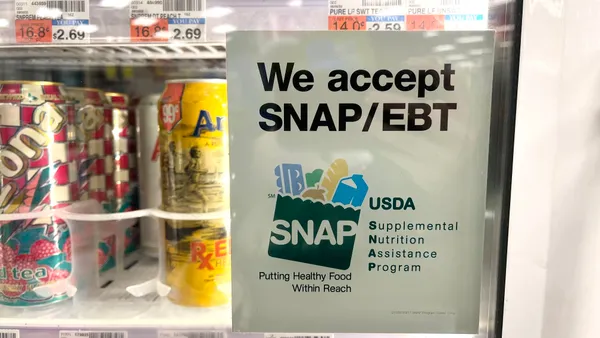Dive Brief:
- Kraft Heinz is piloting an AI agent to help employees better access information about the company’s ketchup production process, with plans for more use cases down the line.
- The tool, called The Cookbook, went from idea to prototype in fewer than three months, the company told CIO Dive. It was created in partnership with Microsoft and built using Azure OpenAI. Workers have access to 150 years of Kraft Heinz expertise in ketchup production.
- “With the stroke of a keyboard or tap on a tablet, users will be able to ask The Cookbook questions on everything from the thickness and color of a batch of Heinz Tomato Ketchup to insights about the efficiency of our production processes,” the company said. The Cookbook is still in the early stages, with just a select group of U.S. team members having access. The company declined to say how many.
Dive Insight:
Kraft Heinz is adding an agent to its AI portfolio in pursuit of efficiency and knowledge preservation. Prior to The Cookbook, the company launched TasteMaker, which was designed to accelerate product development and marketing.
“This is not the first AI agent to be deployed at Kraft Heinz,” Pat Nestor, head of decision intelligence products and platforms, said in an email to CIO Dive. “We continue to explore integrated AI solutions that can drive scalability and connectivity across the organization, unlocking further value for the business, our people and consumers.”
The new tool comes after the global food and beverage giant has honed its innovation funnel, driven in part by efforts to identify the right use cases and formulate business value assessments to track success.
Nestor told CIO Dive earlier this year that the company works to pressure test use cases upfront and monitors AI projects using a mix of quantitative and qualitative metrics. The process helps ensure allocated resources are going to the right use cases and avoid dead-end projects that are plaguing businesses across the economy.
This year, 42% of companies are abandoning the majority of their AI projects, up from 17% in 2024, according to an S&P Global Market Intelligence report published in March. CIOs and their enterprises often grapple with connecting use cases to business goals, sifting through vendor hype and failing to prioritize responsible practices, among other implementation challenges.
Kraft Heinz executives have touted a number of beneficial, worker-facing AI use cases, such as within the pickle-producing process and across its supply chain.
“We aim to use key learnings and insights from The Cookbook pilot to scale to other brands, products, and Kraft Heinz businesses, and we are currently in the process of exploring additional use cases for the technology,” Nestor said Tuesday. “We know it’s essential that we preserve and protect our subject matter experts’ knowledge and commitment to quality.”
Despite the AI inroads, significant changes lie ahead for Kraft Heinz.
The food and beverage giant is planning to reverse much of its $46 billion merger from 2015 and split into two companies, with one focusing on sauces, spreads and seasonings, and another housing grocery staples, such as Lunchables and Oscar Mayer. Splits and mergers often include technology hurdles, from migrating workloads to untangling tech debt.
The company has run up against many of the same challenges that others in the industry face, including changing consumer patterns and a challenging macroeconomic environment. In general, the focus on technology has sharpened in the wake of the turmoil as businesses pursue ways to alleviate pressure.
“Our investments in technology, particularly in AI, have transformed our ways of working,” CEO Carlos Abrams-Rivera said during the company’s Q2 2025 earnings call in July. “From improving demand forecasting to optimizing factory floor processes, we are driving end-to-end improvement.”















